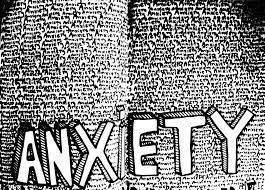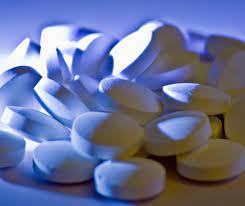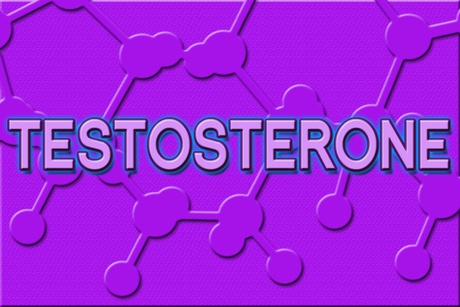How Can I Restore My Testosterone Production Naturally?
Video Link: https://vimeo.com/183549353
Video Download: Natural Testosterone Restoration
Video Stream: Natural Testosterone Restoration
Natural Testosterone Restoration
Although Bio-Identical Testosterone Hormone Replacement Therapy is a superb option for many men across the United States, there are many natural ways to boost Testosterone Production. No matter how old you are, the tips in this article will benefit you and help you maximize the benefits of your body's Testosterone. Whether twenty or sixty, these tips are all guaranteed to improve your hormone health.
Why Consider Natural Methods before Turning to Treatment?
Not everyone qualifies for therapy. Some men are too young. Other men have Normal Testosterone Levels but want to do everything possible to delay Testosterone Deficiency as long as possible. Only men diagnosed with Low-T are approved for Testosterone Replacement Therapy, but any man can take steps in his own life to promote a healthier hormone balance.
Many Doctors Promote Natural Methods before They Turn to Hormone Treatments
Most physicians will not prescribe Testosterone without discussing your lifestyle choices and how they impact your hormone balance. You can do many healthy things to boost your natural Testosterone Production, and these methods may delay your need for Testosterone HRT.
Improving Personal Habits in Combination with Therapy Yields Profound Rewards
Even if you decide to utilize Testosterone Patches, Gels, or Injections, these same steps that improve Testosterone Release still positively impact your health and amplify the effects of your hormone treatment.
Remember that, although Hormone Replacement Therapy can positively impact your life even if you don't change any aspect of your lifestyle, the only way you can maximize your health and wellness outcome is to become an active and conscientious participant in your own life.
That's why we call ourselves the Conscious Evolution Institute. We recognize that combining individual effort and high-quality medical supplementation provides the life-changing outcomes our patients desire.
In this article, we will discuss a few things you can do to encourage your body to produce more of its Testosterone.
Get the Sleep that Your Body Needs
Sleep is one of the most important aspects of a healthy life, even though we only partially understand it. Sleep is a period of rest and rehabilitation that repairs the body after a long day of wear and tear. If you don't get the sleep, your body so desperately requires, your hormone balance will suffer significantly.
Two hormones that poor sleeping habits affect profoundly are Testosterone and Human Growth Hormone. When you don't get a whole night's sleep, your body doesn't rehabilitate properly, and resources start to reallocate. Testosterone Production is one of the first processes which get diverted.
In one study, participants were forced to wake up after only four hours of sleep. Even after a single night of abridged sleep, Testosterone production dropped significantly. As a direct result of this relatively minor sleep deprivation, participants produced an average of twenty percent less Testosterone. Research also shows that Sleep Apnea can contribute to severe Testosterone Deficiency over time. It appears that Testosterone Secretion is linked not only to the length of sleep but the quality as well.
What Can I Do to Sleep Better?
Choose to make restful sleep one of the central goals of your life. Take a weekend to figure out exactly how much sleep your body needs for you to recuperate fully. This ranges from person to person and changes dependent upon age. Some men need nine hours of sleep per night, whereas others wake up refreshed after only seven hours.
Just figure out what your body needs, and make every effort to fulfill that need. Take the time to truly appreciate the importance of good sleep and its effect on your health. Sleep is equally important to diet and exercise in living a happy, healthy, and productive life.
If you have trouble establishing a healthy sleeping pattern, think about turning to a therapeutic dose of melatonin about 45 minutes before bed. Also, limit your nighttime caffeine consumption. It takes eight hours for caffeine to leave your system, so avoid drinking caffeine in the evening hours preceding your chosen bedtime.
Another way to encourage sleep is to eliminate sources of distraction from the bedroom. In this modern, wired culture, cell phones, televisions, and laptops make it to where you have the world at your fingertips, even beneath a pile of blankets. Leave the toys in the living room. By establishing your bedroom as a place of rest, you turn your bedroom into a place of rest and relaxation rather than a playroom.
If you still have trouble sleeping well, even after making a valid attempt at changing your habits, talk to a physician because several options and treatments can help you solve the underlying issues that limit your ability to sleep.
Work to Maintain a Healthy Muscle-Fat Ratio
Testosterone Production is significantly affected by the presence of adipose fat. The more of it there is, the harder it will be for your body to produce Testosterone effectively. This is because fat cells produce an enzyme known as aromatase.
Aromatase has the nasty ability to convert Testosterone directly into Estrogen. The fat cells that produce the highest aromatase levels are called Adipose Fat Cells. The purpose of these cells is primarily to store excess body fat in case times get tough and meals get lean.
The problem is that in America, most people's problem is that they eat way too much food, not that they don't eat enough.
Adipose fat is also the type of fat that creates the aesthetically displeasing shape associated with obesity. Adipose Fat develops in the highest concentrations around the body's core, leading to the pear shape often associated with obesity.
The stomach lumps out, and the hips, butt, and thighs grow larger. The more fat stored in these adipose fat cells, the more active that Aromatase will be both in your cells and your body at large, causing you to lose your ability to produce Testosterone naturally and healthily.
both in your cells and your body at large, causing you to lose your ability to produce Testosterone naturally and healthily.
A certain level of Estrogen production is necessary to promote optimal health, and that level of production is associated with an optimal body fat percentage. Study after study has shown that Body Fat Percentage is the strongest indicator of Testosterone Production in younger males, dominant until Age-Related Decline eventually has a more significant impact late in life.
Poor eating habits can also stunt Testosterone Deficiency. A healthy body bolsters Testosterone Production, and if you starve yourself and don't maintain a healthy body mass, your Testosterone Production will suffer.
Testosterone is generated from fat; it's just that excess, pooled adipose fat counteracts the average production of Testosterone.
Monounsaturated fats, saturated fats, and Omega 3 and 6 Fatty Acids all play a role in Testosterone production. Transfats and polyunsaturated fats should be limited as much as possible because they mainly contribute negatively to overall health.
What can I do to correct Testosterone Deficiency caused by unhealthy Body Fat?
Eat smart! If you are obese, talk to a diet specialist, or start taking steps to change your eating habits. Avoid simple sugars and carbohydrates because they provide little nutrition, but they contribute to obesity more than any other food you eat.
Regarding meat, try to stick to lean meats such as chicken and fish to maintain your intake of protein and healthy fats while minimizing your overall intake of unhealthy forms of fat.
Choose physical activities that promote healthy cardiovascular health. Start jogging three to five times a week. Start slow if you'd like, and build up your tolerance to physical activity over time.
If you are underweight, start eating more and focus on complex carbohydrates and proteins, maximizing efficient caloric intake while promoting optimal health. Don't just stuff your face with unhealthy forms of fat, sugar, and bread, but choose foods that contribute to healthy nutrition while not putting a strain on your pancreas or cardiovascular system.
Get Physically Active
Many people don't realize that a simple concept controls Testosterone Regulation: If your brain recognizes that you need Testosterone, it will work harder to meet the body's demands. Nowhere is this more true than in the case of physical activity. If you live a sedentary lifestyle, it becomes evident to your brain that you don't really need Testosterone.
This is true in the short term, but your body has no long-term concept of the detrimental effects of Testosterone Deficiency over time. In addition, the brain only recognizes that the body doesn't need Testosterone to survive.
However, you will still suffer because your body won't produce the testosterone you need to have the energy to negotiate positive change or simply enjoy life.
A sedentary lifestyle promotes a physiological system designed to stay in place. It's essentially like physics. A body in motion tends to stay in motion. A  body at rest tends to stay at rest. To convince your brain that you need more Testosterone, you must make the first move and GET ACTIVE.
body at rest tends to stay at rest. To convince your brain that you need more Testosterone, you must make the first move and GET ACTIVE.
Although muscles don't directly produce Testosterone on their own, the signals sent to the brain and body when you work out encourage the release of greater levels of Testosterone, as well as Human Growth Hormone.
Exercise convinces your hypothalamus that your body needs more muscle mass to survive and starts sending signals to amplify Testosterone Production.
What Can I do To Increase Testosterone with Exercise?
We suggest taking things slow if you haven't been active in a long time. Below are some steps that you can take to increase your Testosterone Production:
Spend twenty to thirty minutes daily walking at a healthy and brisk pace. Walking speeds up your heart rate and can shock your muscles back to life. Over time, jog or run rather than just walk if you are physically capable.
Start to incorporate lightweight training into your weekly routine. Just performing exercises with low levels of weight can have a very beneficial effect on your body. We also recommend resistance training utilizing bands or other tools. If you are unfamiliar with weight training, we suggest getting the advice of a trainer in your initial sessions.
If you are reasonably healthy and just want to maximize your Testosterone Production:
Focus on anaerobic exercise and moderate cardio over endurance training. Remember that Testosterone Production is promoted most effectively by anaerobic exercise. Incorporate short, frequent sprints into your runs, for example.
Also, put a high emphasis on weight training rather than endurance-based cardio, focusing on high weights with low reps.
Get a Handle on Your Stress
Beyond fat and poor sleeping habits, there is nothing that contributes to Low-T like Stress. The number one hormone associated with stress is Cortisol. We don't intend to demonize cortisol completely, but for millions of people across America, Cortisol production is not managed healthily.
Cortisol is produced not only as a result of physical stress indicators but also by emotional and psychological sources.
The primary goal of Cortisol is simple. Cortisol encourages physiological changes to help you instantly adapt to short-term peaks of stimuli. It gets your body and mind amped up to make snap decisions.
This change in physiological priority enhances your ability to do many things, from negotiating a business deal to dodging a punch in a fight to thinking on your feet the first time you talk to a girl at a bar.
The problem is that, due to the way we are wired as human beings, we tend to produce too much cortisol. One of the benefits of our large and advanced brains is that we are exceptional at managing and juggling long-term goals. The problem with this is that this management can cause us long-term stress, which is essentially related to our environment and self-perception.
Cortisol is intended to help us manage short-term stress, but our bodies will make too much cortisol if we are not good at compartmentalizing and managing stress.
How Does Cortisol Relate to Testosterone Production?
The anxiety associated with the overproduction of Cortisol is terrible on its own. Still, it also negatively impacts the body's ability to create and distribute Testosterone effectively. This is because Cortisol and Testosterone fight over the same pool of resources in production.
Depending on specific variables in your life, testosterone or Cortisol production will dominate. There are a lot of issues that contribute to Cortisol Dominance, including:
Obesity Adipose fat cells can be detrimental to the body in high doses. From an evolutionary perspective, we are calibrated to be relatively lean creatures, so when our bodies store too much fat, it trades long-term health for short-term survivability. When an individual is overweight, he puts his cortisol production out of balance. The more fat in the body, the more enzymes that are produced, which build and activate Cortisol. This increase in production eats away at the body's ability to make enough Testosterone.
Anxiety Psychological stress promotes the release of Cortisol into the body as a response. Increased Cortisol Production leads directly to a decrease in
 Testosterone Production. This creates a negative feedback loop for Testosterone because Testosterone does have the capacity to regulate stress. Still, Cortisol eats away at Testosterone Secretion, inducing more significant stress levels and encouraging even greater Cortisol Secretion.
Testosterone Production. This creates a negative feedback loop for Testosterone because Testosterone does have the capacity to regulate stress. Still, Cortisol eats away at Testosterone Secretion, inducing more significant stress levels and encouraging even greater Cortisol Secretion.Pain- Cortisol is one of the main hormones in pain management. In terms of short-term sources of pain, this is a great thing. Combined with adrenaline, it lets you get out of a jam or get yourself to safety without realizing how much you are hurting. The problem is that chronic pain causes Cortisol levels to skyrocket.
How to Reduce Stress
If you are having problems with stress, there are some simple things that you can do to reduce stress in your life:
Try to spend two hours daily doing things you enjoy that aren't related to your anxieties. Play music, watch a movie, read, or just talk to friends. Just do something that gets your mind off the things that stress you out.
Don't work yourself to death. Our bodies and minds have a limited amount of time that we can focus on tasks before we start to lose our edge. Try to stick with seven to ten-hour days, tops, and be as effective as possible without straining yourself physically and psychologically.
Think about engaging in some relaxation techniques. There are plenty of places where you can do yoga or work on meditation. For some people, a prayer is even a form of meditation.
Release that nervous energy in the gym. Physical activity is a fantastic way to cancel out some of your life's stress while promoting better hormone balance.
Know Your Medications
Particular medications can cause your Testosterone Production to drop. If you are having issues that you feel are related to Testosterone Deficiency, talk to your doctor if you are using any of the following medications:
Glucocorticoids are a class of drugs used for two primary purposes. They are used to suppress the immune system, and they are also used to reduce various forms of inflammation. They are commonly used for arthritis, Inflammatory Bowel Disease, and asthma, among many other medical conditions.
Long-term use of these drugs has an inhibitory effect on Testosterone production, leading to a number of symptoms such as high blood pressure, loss of bone mineral density, rapid weight gain, and loss of strength.
Opioids are a class of drugs that essentially imitate the function of endorphins in the human body. Opioids tend to be powerful medications used to treat chronic pain. They are commonly used to reduce the pain of cancer and cancer treatments and mask the pain of rheumatoid arthritis. Medications such as codeine can be used as cough suppressants, and certain forms can be used to relieve anxiety attacks.
There is some evidence that long-term opioid use can diminish overall well-being as a result of Testosterone Deficiency. Testosterone Replacement Therapy can increase the quality of life and normalize hormone levels.
Anabolic Steroids are hormones that encourage the body to build and repair body tissues. There are quite a few medical uses for this class of drugs, including the treatment of osteoporosis, anemia, body fat regulation, and muscle atrophy.
However, anabolic steroids can have the unfortunate side-effect of reducing the body's capacity to produce testosterone. Anabolic steroids can send signals to the brain to reduce Testosterone Production due to the flux of other steroids in the body.
If you want to work on boosting your Testosterone Levels, don't just quit your medications. Of course, we recommend against recreational use of any of these drugs, but in the case of Opioid addiction, work with a specialist to try to eliminate your addiction because Opioids can be difficult and dangerous to quit alone if you are very addicted.
Regarding medications you are taking for a legitimate purpose, talk to your doctor about what you can do to simultaneously remain on necessary treatments while working to elevate your Testosterone to Normal levels. For most drugs, there are ways that you can make this work effectively, or if the drugs are having too powerful of an effect on your hormone balance, there may be other effective medical options.
Avoid Testosterone Supplements
If you want to boost your Testosterone Levels with supplements or medications, you will have to go to a physician and invest in the real thing. Over-the-Counter Supplements which claim to boost Testosterone Levels provide little benefit if they provide benefits at all. Also, avoid any product which claims to be Testosterone that you can get without a prescription. Sometimes you'll see products that claim to be Oral Testosterone Releasers. These simply are not effective.
DHEA is available over the counter, but taking the hormone to increase Testosterone Production is not recommended. DHEA can provide other valuable benefits, such as combating osteoporosis, increasing the likelihood of arousal for men with ED, and improving skin health.
benefits, such as combating osteoporosis, increasing the likelihood of arousal for men with ED, and improving skin health.
Still, it is not the same as Testosterone and should not be considered a cheap Testosterone Booster.
If you want to improve your Testosterone Levels naturally, rather than invest in various supplements to increase Testosterone Production, just eat an intelligent diet that provides your body with all the essential nutrients needed for healthy function.
Look up respected alternatives to the Standard FDA Recommended Daily Allowances. RDAs are rough estimates of what your body needs to be healthy, but it does not necessarily encourage optimal nutritional intake to persist at your peak!
If All Else Fails, Don't Be Afraid of Testosterone Replacement Therapy
If heeding this practical advice does not improve your T-Levels sufficiently, don't be afraid to talk to a doctor. Testosterone Deficiency is a real and detrimental medical condition that doesn't always respond to treatment.
In fact, the older you get, the less likely your body will be able to produce the natural Testosterone that your body needs to ensure optimal health and vitality.
If you are interested in Physician-Monitored Bio-Identical Testosterone Hormone Replacement Therapy, we encourage you to contact the Conscious Evolution Institute today. Even if Testosterone Replacement isn't suitable for you, we will use a client-centered approach to do what we can to help you optimize your hormone balance to maximize your health and vitality!

- 0001 What Are Normal Testosterone Levels For Men And Women Throughout Life? [Last Updated On: February 14th, 2025] [Originally Added On: May 26th, 2020]
- 0002 Top Tips For Boosting Testosterone Naturally [Last Updated On: September 27th, 2025] [Originally Added On: May 27th, 2020]
- 0003 The Testosterone Factor [Last Updated On: October 28th, 2025] [Originally Added On: May 28th, 2020]
- 0004 Testosterone Can Help Relieve The Menopause Symptom Of Hot Flashes [Last Updated On: February 14th, 2025] [Originally Added On: May 29th, 2020]
- 0005 How Does Low Testosterone Cause Infertility? [Last Updated On: February 8th, 2025] [Originally Added On: May 30th, 2020]
- 0006 The Benefits Of Testosterone Therapy For Prostate Cancer [Last Updated On: February 14th, 2025] [Originally Added On: May 31st, 2020]
- 0007 Is Testosterone Replacement A Valid Diabetes Treatment? [Last Updated On: February 15th, 2025] [Originally Added On: June 1st, 2020]
- 0008 Testosterone Shock Therapy May Be An Effective Prostate Cancer Treatment [Last Updated On: February 5th, 2025] [Originally Added On: June 2nd, 2020]
- 0009 Testosterone Replacement Therapy Is Safe For The Heart [Last Updated On: February 14th, 2025] [Originally Added On: June 3rd, 2020]
- 0010 Testosterone Replacement Therapy [Last Updated On: October 22nd, 2025] [Originally Added On: June 4th, 2020]
- 0011 Testosterone Patches [Last Updated On: February 8th, 2025] [Originally Added On: June 5th, 2020]
- 0012 Testosterone Overview [Last Updated On: February 13th, 2025] [Originally Added On: June 6th, 2020]
- 0013 Testosterone Levels And Making Money [Last Updated On: September 10th, 2025] [Originally Added On: June 7th, 2020]
- 0014 Testosterone Enanthate [Last Updated On: September 9th, 2025] [Originally Added On: June 8th, 2020]
- 0015 Increased Awareness Of Low-t Helps Men Live Healthier Lives [Last Updated On: February 7th, 2025] [Originally Added On: June 9th, 2020]
- 0016 How Does Low-t Lead To Erectile Dysfunction? [Last Updated On: February 7th, 2025] [Originally Added On: June 10th, 2020]
- 0017 Testosterone Basics [Last Updated On: February 6th, 2025] [Originally Added On: June 11th, 2020]
- 0018 How Does Testosterone Impact Prostate Health? [Last Updated On: February 6th, 2025] [Originally Added On: June 12th, 2020]
- 0019 Testosterone And Other Sex Hormones Impact Asthma Response Dependent On Sex [Last Updated On: February 5th, 2025] [Originally Added On: June 13th, 2020]
- 0020 Recognizing Subtle Symptoms Of Testosterone Deficiency [Last Updated On: February 4th, 2025] [Originally Added On: June 15th, 2020]
- 0021 Testosterone Trivia [Last Updated On: February 4th, 2025] [Originally Added On: June 16th, 2020]
- 0022 The Health Benefits Of Testosterone And Sleep Are Interconnected [Last Updated On: February 3rd, 2025] [Originally Added On: June 17th, 2020]
- 0023 Low-t Quiz [Last Updated On: September 3rd, 2025] [Originally Added On: June 19th, 2020]
- 0024 Low Testosterone Might Mean Poor Sleep Need Testosterone Hormone Injections [Last Updated On: September 2nd, 2025] [Originally Added On: June 20th, 2020]
- 0025 Low Testosterone Contributes To Frailty With Age [Last Updated On: September 1st, 2025] [Originally Added On: June 21st, 2020]
- 0026 Low Testosterone Affects A Third Of Young Men With Type 2 Diabetes [Last Updated On: August 31st, 2025] [Originally Added On: June 22nd, 2020]
- 0027 Japanese Testosterone Study Proves Physical And Psychological Benefits [Last Updated On: August 30th, 2025] [Originally Added On: June 23rd, 2020]
- 0028 Intramuscular Injections Are Safer Procedures [Last Updated On: August 29th, 2025] [Originally Added On: June 24th, 2020]
- 0029 Injecting Testosterone (im) [Last Updated On: October 24th, 2025] [Originally Added On: June 25th, 2020]
- 0030 Injectable Testosterone And Testosterone Cream [Last Updated On: February 14th, 2025] [Originally Added On: June 26th, 2020]
- 0031 Indiana Jones Vs. Rambo (hgh Testosterone) [Last Updated On: August 28th, 2025] [Originally Added On: June 27th, 2020]
- 0032 How Much Does Testosterone Control Men's Behavior? [Last Updated On: August 27th, 2025] [Originally Added On: June 28th, 2020]
- 0033 Getting To The Bottom Of Low-t Under-reported Sources Of Testosterone Deficiency [Last Updated On: February 14th, 2025] [Originally Added On: June 29th, 2020]
- 0034 How To Manage And Overcome Testosterone Deficiency [Last Updated On: August 26th, 2025] [Originally Added On: June 30th, 2020]
- 0035 Clomiphene Low-testosterone Andropause Treatment [Last Updated On: February 3rd, 2025] [Originally Added On: July 1st, 2020]
- 0036 How Do Synthetic Chemicals Impact Testosterone Secretion? [Last Updated On: August 18th, 2025] [Originally Added On: July 2nd, 2020]
- 0037 Interest In Bio-identical Testosterone Is Skyrocketing [Last Updated On: August 25th, 2025] [Originally Added On: July 3rd, 2020]
- 0038 Axiron Spray-application Testosterone Replacement Therapy [Last Updated On: August 24th, 2025] [Originally Added On: July 4th, 2020]
- 0039 Andropause: Male Menopause [Last Updated On: September 14th, 2025] [Originally Added On: July 5th, 2020]
- 0040 Testosterone Deficiency Treatment Options [Last Updated On: August 21st, 2025] [Originally Added On: July 6th, 2020]
- 0041 The Facts About Testosterone Hrt For Low-t [Last Updated On: August 22nd, 2025] [Originally Added On: July 7th, 2020]
- 0042 Misconceptions About Testosterone Replacement Therapy [Last Updated On: August 23rd, 2025] [Originally Added On: July 8th, 2020]
- 0043 Testosterone Replacement Therapy Facts And Myths [Last Updated On: October 4th, 2025] [Originally Added On: July 9th, 2020]
- 0044 Testosterone Injections For Testosterone Deficiency [Last Updated On: September 18th, 2022] [Originally Added On: July 10th, 2020]
- 0045 Testosterone Replacement Therapy May Help Aging Males Prevent Diabetes [Last Updated On: August 19th, 2025] [Originally Added On: July 11th, 2020]
- 0046 The Benefits Of Testosterone Replacement Therapy For Women [Last Updated On: August 17th, 2025] [Originally Added On: July 13th, 2020]
- 0047 How Can Testosterone Hrt Improve My Life Via Quality Low-t Treatments [Last Updated On: September 13th, 2025] [Originally Added On: July 14th, 2020]
- 0048 Frequently Asked Questions About Testosterone [Last Updated On: August 20th, 2025] [Originally Added On: July 15th, 2020]
- 0049 Bio-identical Testosterone Cypionate Injections [Last Updated On: August 16th, 2025] [Originally Added On: July 16th, 2020]
- 0050 All About Testosterone Creams [Last Updated On: August 13th, 2025] [Originally Added On: July 17th, 2020]
- 0051 Low Testosterone Treatment Protocols [Last Updated On: April 1st, 2025] [Originally Added On: July 19th, 2020]
- 0052 Testosterone Deficiency Drains Your Energy [Last Updated On: February 13th, 2025] [Originally Added On: July 21st, 2020]
- 0053 What Is Testosterone? [Last Updated On: August 11th, 2025] [Originally Added On: July 23rd, 2020]
- 0054 Eleven Signs Of Testosterone Deficiency [Last Updated On: March 30th, 2025] [Originally Added On: July 26th, 2020]
- 0055 Hypertension-Associated Cardiovascular Risks Increase Due To Both Low-T And High Testosterone [Last Updated On: February 18th, 2025] [Originally Added On: April 22nd, 2021]
- 0056 Everything to Know About Androgel [Last Updated On: March 27th, 2025] [Originally Added On: July 8th, 2021]
- 0057 Kinds of Testosterone Therapy – Which Is Right for You? [Last Updated On: March 21st, 2025] [Originally Added On: August 28th, 2021]
- 0058 This Study Says High Protein Diet May Suppress Testosterone Levels [Last Updated On: February 20th, 2025] [Originally Added On: March 28th, 2022]
- 0059 Testosterone and Estrogen Deficiency Associated With Increased Risk of Rotator Cuff Surgery [Last Updated On: February 14th, 2025] [Originally Added On: April 26th, 2022]
- 0060 Low Testosterone Accelerates Aging [Last Updated On: March 20th, 2025] [Originally Added On: May 3rd, 2022]
- 0061 Low Testosterone Endangers Your Health [Last Updated On: February 14th, 2025] [Originally Added On: May 14th, 2022]
- 0062 Testosterone Helps Modulate Immune Activity in the Digestive System [Last Updated On: February 14th, 2025] [Originally Added On: May 18th, 2022]
- 0063 Did you know: Testosterone treats depression! [Last Updated On: November 6th, 2025] [Originally Added On: May 19th, 2022]
- 0064 Benefits of Fenugreek – Boost Testosterone and More [Last Updated On: February 14th, 2025] [Originally Added On: May 23rd, 2022]
- 0065 Testicle Tanning: What is Tucker Carlson Talking About? [Last Updated On: April 16th, 2025] [Originally Added On: June 3rd, 2022]
- 0066 Using Testosterone to Combat Memory Issues in Diabetics [Last Updated On: February 14th, 2025] [Originally Added On: August 16th, 2022]
- 0067 About 40% of Men Have Low-T – and it Doubles the Risk of Severe COVID [Last Updated On: February 25th, 2025] [Originally Added On: September 21st, 2022]
- 0068 The Foods To Boost Your Testosterone…And The Foods To Avoid [Last Updated On: November 4th, 2025] [Originally Added On: September 30th, 2022]
- 0069 Tlando Testosterone: An Innovative Oral Therapy for Low-T [Last Updated On: November 3rd, 2025] [Originally Added On: October 1st, 2022]
- 0070 Testosterone Replacement Therapy (TRT) Explained [Last Updated On: April 8th, 2025] [Originally Added On: October 12th, 2022]
- 0071 Examining The Link Between Testosterone and Employability [Last Updated On: February 18th, 2025] [Originally Added On: November 8th, 2022]
- 0072 Standard Measure of Low Testosterone Doesn't Apply to Young Men [Last Updated On: March 12th, 2025] [Originally Added On: November 8th, 2022]
- 0073 Surprising Things that Cause Men’s Crashing Testosterone [Last Updated On: March 17th, 2025] [Originally Added On: January 5th, 2023]
- 0074 Understanding the Correlation between Testosterone Levels and Job Performance [Last Updated On: February 9th, 2025] [Originally Added On: February 9th, 2025]
- 0075 Link between Low Testosterone and Severe COVID Symptoms in Men [Last Updated On: February 12th, 2025] [Originally Added On: February 12th, 2025]
- 0076 The Good Job Grip: Is Testosterone the Key? [Last Updated On: February 13th, 2025] [Originally Added On: February 13th, 2025]
- 0077 Importance of Nutritional Balance in a Healthy Diet [Last Updated On: February 14th, 2025] [Originally Added On: February 14th, 2025]
- 0078 Invigorating Power of the Fenugreek Plant: A Natural Testosterone Energizer and More [Last Updated On: February 14th, 2025] [Originally Added On: February 14th, 2025]
- 0079 Unlocking the Testosterone Treasure: A Panacea for Cognitive Woes in Diabetic Patients [Last Updated On: February 14th, 2025] [Originally Added On: February 14th, 2025]
Word Count: 3167






